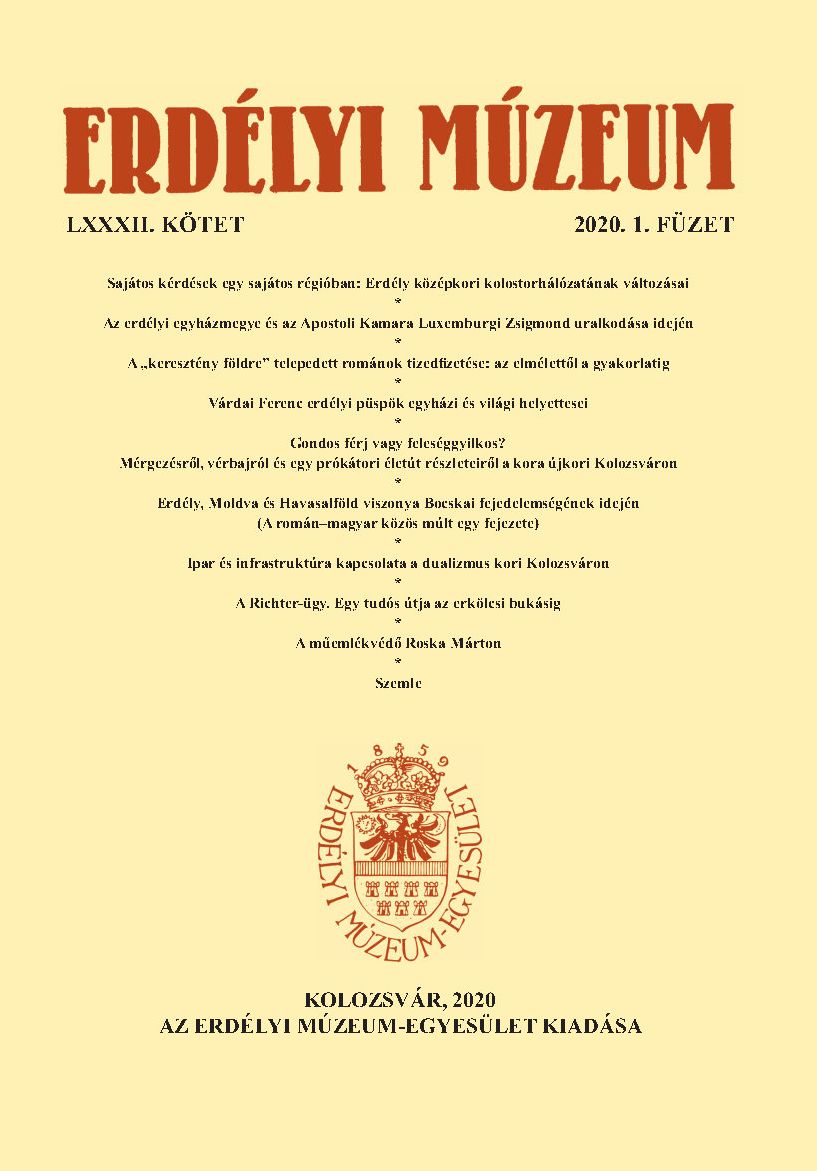Gondos férj vagy feleséggyilkos?
Caring Husband or Wife Killer?
Poisoning, French Disease, and Details of a Procurator’s Career in Early Modern Cluj
Author(s): László PakóSubject(s): Cultural history, History of Law, Local History / Microhistory, Social history, Gender history, 16th Century
Published by: Erdélyi Múzeum-Egyesület
Keywords: poison; French disease; uxoricide; procurator; judicial corruption; mercury-treatment
Summary/Abstract: The study focuses on certain unclarified aspects of the life of George Igyártó, a procurator in the early modern town of Cluj. Based on his career, we have shown earlier how the prosperous activity and – due to acts of judicial corruption – the downfall of a person, at first in the service of the citizens, then also as official procurator of the town, marked the whole judicial system of Cluj. This time we shall concentrate on a case of a woman, around 1581, whom he accused of wearing carnival costumes on the streets of the town, accused him with adultery and uxoricide. Some witnesses stated that he poisoned his first wife with food containing mercury, being helped by a traditional healer and a surgeon. According to others, the wife was suffering most probably of the French disease, which together with her ignoring the strict medical prescriptions of a surgeon caused her death. As other studies have also shown, the contradictory standpoints of the litigants demonstrate that in times when limited medical knowledge made the diagnosis of the cause of death more problematic than today, the litigants had more chance to influence the decisions of the judges on behalf of their causes. The case also shows how thin and fragile the borderline was between contrasting opinions under the circumstances of the early modern medical system, in our case between an action being interpreted as a murder or as a life-saving effort.
Journal: Erdélyi Múzeum
- Issue Year: LXXXII/2020
- Issue No: 1
- Page Range: 65-82
- Page Count: 18
- Language: Hungarian

